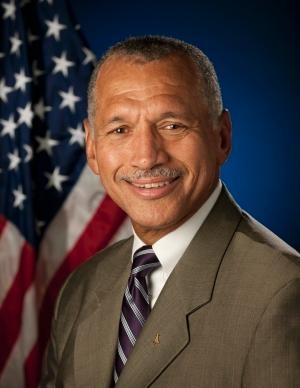Commercial Crew Request For Proposals Finalizes Development And Certification Process
NASA took another step Tuesday to restore an American capability to launch astronauts from U.S. soil to the International Space Station by the end of 2017, subject to the availability of adequate funding. The agency's Commercial Crew Program (CCP) requested proposals from U.S. companies to complete development of crew transportation systems that meet NASA certification requirements and begin conducting crewed flights to the space station.

"NASA is committed to launching American astronauts from U.S. soil in the very near future, and we're taking a significant step toward achieving that goal today," NASA Administrator Charles Bolden (pictured) said. "Our American industry partners have already proven they can safely and reliably launch supplies to the space station, and now we're working with them to get our crews there as well. However, we will require that these companies provide spacecraft that meet the same rigorous safety standards we had for the space shuttle program, while providing good value to the American taxpayer."
This phase of the CCP, called Commercial Crew Transportation Capability (CCtCap), will enable NASA to ensure a company's crew transportation system is safe, reliable and cost-effective. The certification process will assess progress throughout the production and testing of one or more integrated space transportation systems, which include rockets, spacecraft and ground operations. Requirements under CCtCap also will include at least one crewed flight test to the space station before certification can be granted.
"The U.S. commercial space industry has made tremendous progress designing and developing the next generation of U.S. crew transportation systems for low-Earth orbit," said William Gerstenmaier, NASA's associate administrator for Human Exploration and Operations in Washington. "Finalizing these systems in accordance with NASA’s certification requirements will not be easy. The acquisition approach we are using is designed to leverage the innovative power of industry with the expertise, skill and hard-learned lessons from NASA. This request for proposals begins the journey for a new era in U.S. human spaceflight."
As with all of NASA's human spaceflight activities, astronaut safety will be a priority. CCtCap ensures a strong emphasis on crew safety through its requirements, including NASA insight throughout development and thorough testing of the space transportation systems. "NASA is taking its years of expertise in human spaceflight systems and partnering with industry to develop a safe and reliable crew transportation system for NASA and for the nation," said Phil McAlister, NASA's director of Commercial Spaceflight Development. "These certification contracts are part of a strategy that will help ensure human safety.”

NASA expects to award one or more CCtCap contracts no later than September 2014.
CCtCap is the second phase of a two-phased effort that began last year. It builds on the accomplishments of a first certification phase, called Certification Products Contracts (CPC). CPC required companies to deliver a range of products that establish a baseline for their integrated system certification. CCtCap is open to any company with systems at the design maturity level consistent with the completion of the first certification phase.
CCtCap contractors will plan, manage and execute long-term production and operational plans for their systems. The firm-fixed price contracts, based on the Federal Acquisition Regulations (FAR), will include at least one crewed flight test to verify the spacecraft can dock to the space station and that all its systems perform as expected. CCtCap contracts also will include at least two and as many as six crewed, post-certification missions to enable NASA to meet its station crew rotation requirements.
While CCtCap will enable NASA to acquire a capability to transport crews to the space station, systems developed by U.S. industry can be marketed and used by other customers.
As NASA works with U.S. industry partners to develop commercial spaceflight capabilities to low-Earth orbit, the agency also is developing the Orion spacecraft and the Space Launch System (SLS), a crew capsule and heavy-lift rocket to provide an entirely new capability for human exploration. Designed to be flexible for launching spacecraft for crew and cargo missions, SLS and Orion will expand human presence beyond low-Earth orbit and enable new missions of exploration across the solar system.
 Aero-News: Quote of the Day (11.18.25)
Aero-News: Quote of the Day (11.18.25) ANN's Daily Aero-Term (11.18.25): On-Course Indication
ANN's Daily Aero-Term (11.18.25): On-Course Indication ANN's Daily Aero-Linx (11.18.25)
ANN's Daily Aero-Linx (11.18.25) NTSB Final Report: Shoemaker Ronald R Pazmany PL-2
NTSB Final Report: Shoemaker Ronald R Pazmany PL-2 Airborne-NextGen 11.18.25: Dream Chaser Preps, Joby eTurbine, UAE Flt Test
Airborne-NextGen 11.18.25: Dream Chaser Preps, Joby eTurbine, UAE Flt Test




